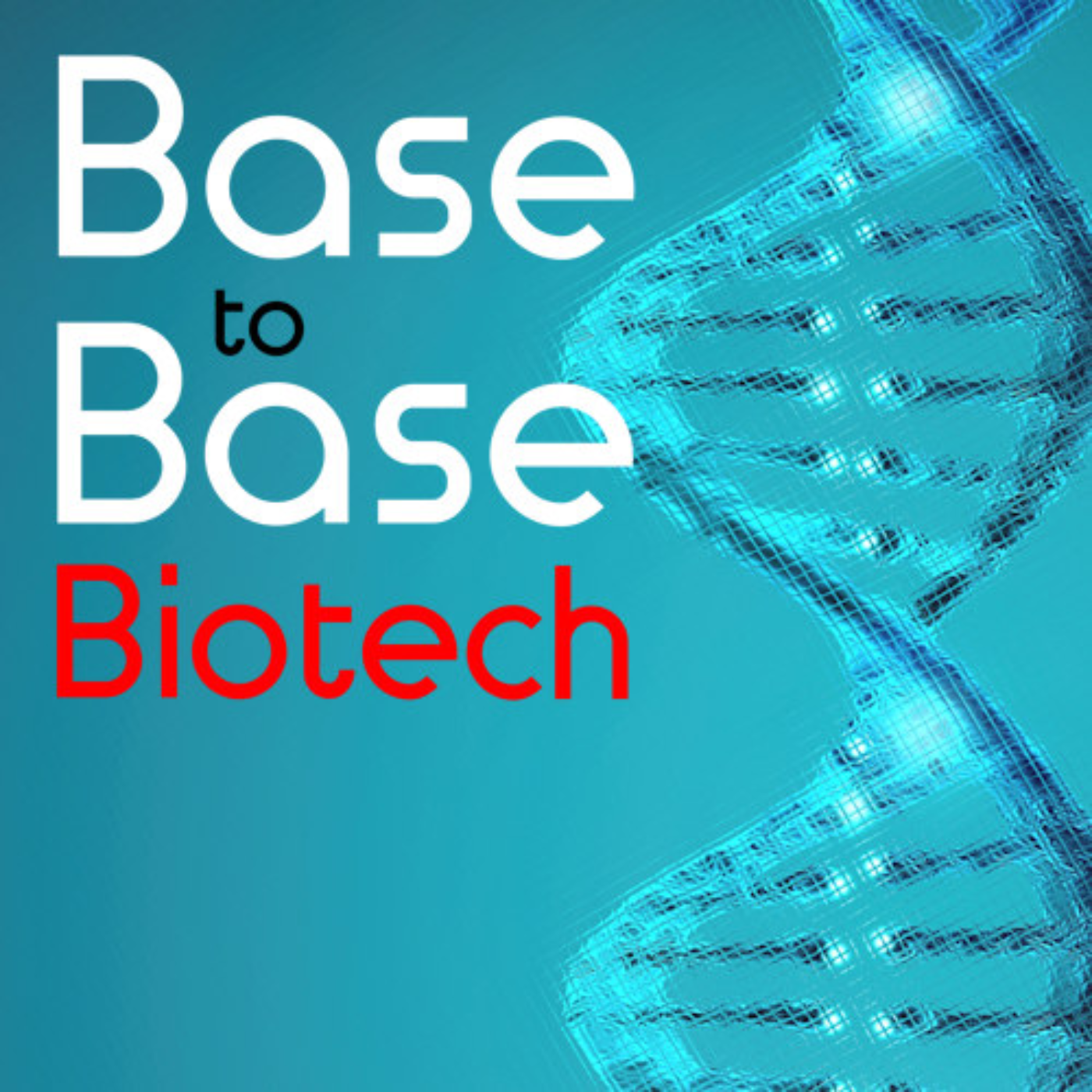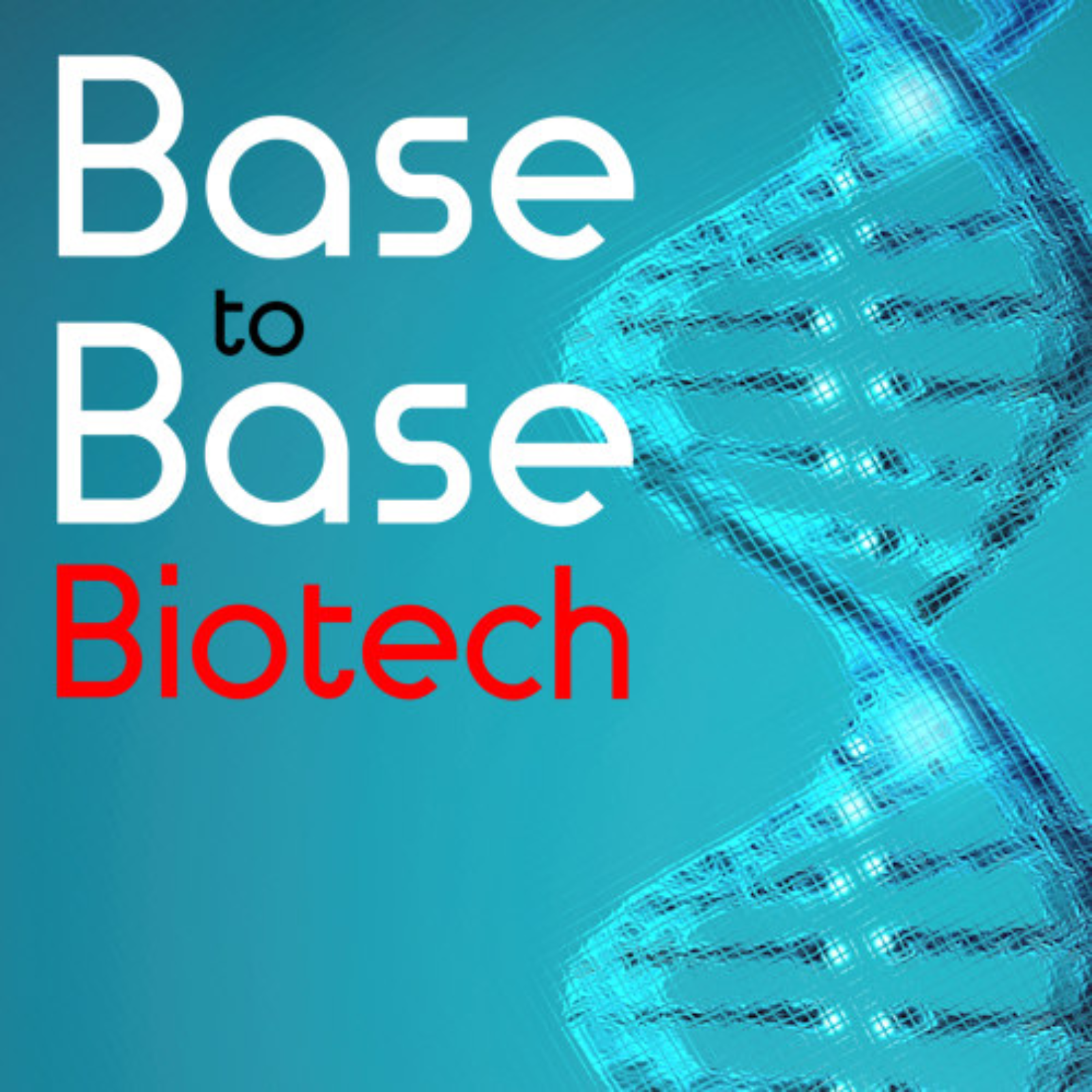Base to Base Biotech

Base to Base Biotech
Podcast Description
The Base to Base Biotech podcast is a weekly look at what's happening in the world of biotech, with interviews with biotech leaders around the world.Whether it's a new drug, cutting-edge technology, product launches, new technology, major finding announcement or clinical trial results, Base to Base Biotech keeps you informed.The podcast is hosted by former biotech editor and broadcaster, the award-winning media veteran Jim Cornall.Base to Base is an Ayr Coastal Media Ltd production.
Podcast Insights
Content Themes
The podcast covers a range of topics within the biotech realm, including new drug developments, technological advancements, clinical trial results, and product launches. Specific episodes highlight innovations like non-addictive pain alternatives and wearable devices for bone health, alongside discussions on artificial intelligence in disease diagnostics and cancer immunotherapy strategies. Each episode aims to keep listeners informed and engaged with the dynamic biotech sector.

The Base to Base Biotech podcast is a weekly look at what’s happening in the world of biotech, with interviews with biotech leaders around the world.
Whether it’s a new drug, cutting-edge technology, product launches, new technology, major finding announcement or clinical trial results, Base to Base Biotech keeps you informed.
The podcast is hosted by former biotech editor and broadcaster, the award-winning media veteran Jim Cornall.
Base to Base is an Ayr Coastal Media Ltd production.
This week, we’re talking about eye treatments with Oculis CEO, Riad Sherif, we have a conversation about mitochondria, with the CEO of Vandria, Klaus Dugi, and there’s also a short discussion about GoCo Health Innovation City in Gothenburg, Sweden, with Moa Dicksdotter, Partnership and Ecosystem.
Times:
02:35 Vandria
20:03 GoCo Health Innovation City
25:54 Oculis
Looking to the eyes
Oculis is a Swiss ophthalmology company developing topical and biologic treatments for retinal disease and neuro‑ophthalmic conditions. Its pipeline spans diabetic macular oedema, dry eye disease, and optic neuropathies, with a focus on non‑invasive delivery formats that can replace or reduce the need for injections. The company’s lead asset, OCS‑01, is in late‑stage development as a topical alternative for diabetic macular oedema.
In December, the U.S. FDA granted Breakthrough Therapy Designation to Oculis’ neuroprotective candidate, Privosegtor (OCS‑05), for optic neuritis. The decision followed phase 2 data showing clinically meaningful improvements in low‑contrast visual acuity. The designation allows for closer FDA interaction as the programme moves toward registrational studies.
Oculis is now preparing for multiple clinical milestones across 2026, including pivotal readouts for OCS‑01. The company continues to position itself around differentiated delivery technologies in ophthalmology, with programmes spanning both front‑ and back‑of‑the‑eye disorders.
Mitochondrial therapeutics
Vandria is a Lausanne‑based biotech developing small‑molecule mitophagy activators aimed at restoring mitochondrial quality control in age‑related and chronic diseases. Its approach centres on orally available compounds designed to improve cellular resilience in neurological and muscular disorders. The company’s lead programme, VNA‑318, is being advanced for neurodegenerative indications.
In November 2025, Vandria released phase 1 results for VNA‑318, reporting that the study met its safety and pharmacokinetic objectives and showed biomarker evidence of target engagement. The data support progression into phase 2 development for Alzheimer’s disease, with trial planning now under way.
The company is also preparing for its next financing round to support clinical expansion and further development of its mitochondrial therapeutics platform.
GoCo Health Innovation City
GoCo Health Innovation City is a life‑science district in Mölndal, south of Gothenburg, Sweden, designed as a mixed ecosystem for research, industry, and healthcare organisations. The campus brings together established companies, scale‑ups, and academic groups across health, biotech, and medtech, with a focus on co‑located labs, offices, and community‑driven programmes.
Recently, the site marked a major milestone with the opening of Mölnlycke Health Care’s new global headquarters on the campus. The inauguration brought renewed attention to GoCo’s role as a strategic hub for Swedish life‑science activity and its ability to attract multinational tenants.
The district is continuing to expand its research infrastructure. Thermo Fisher Scientific is establishing a new bioanalytical laboratory on the campus, scheduled to open in late 2025. The facility will support pharmaceutical and biotech clients with GLP‑compliant services and is expected to add significant analytical capacity to the region.
To get in touch with guest suggestions, or to sponsor or advertise on the podcast, please email [email protected]

Disclaimer
This podcast’s information is provided for general reference and was obtained from publicly accessible sources. The Podcast Collaborative neither produces nor verifies the content, accuracy, or suitability of this podcast. Views and opinions belong solely to the podcast creators and guests.
For a complete disclaimer, please see our Full Disclaimer on the archive page. The Podcast Collaborative bears no responsibility for the podcast’s themes, language, or overall content. Listener discretion is advised. Read our Terms of Use and Privacy Policy for more details.